
After completion of the ongoing road projects, the Union Minister added that Jammu and Srinagar would get three road corridors that are currently in different stages of execution ..writes Ahmed Ali Fayyaz
Union Minister for Road Transport and Highways, Nitin Gadkari has promised to reduce the travel time by car between New Delhi and Srinagar from 24 hours to just 8 hours, while the drive between Jammu and Srinagar in December 2023 would be of an incredible four hours.
Addressing a public meeting at Doda after laying foundation stone for 25 surface communication projects, with aggregate length of 259 km worth Rs 11,721 crore and announcing five new highways in the Union Territory of Jammu and Kashmir, Gadkari on Wednesday said the construction of the four-lane national highway (NH-44) from Jammu to Srinagar would be completed in the next 24 months.
After completion of the ongoing road projects, the Union Minister added that Jammu and Srinagar would get three road corridors that are currently in different stages of execution. “Srinagar-Jammu national highway (NH-44) will be completed within two years and the travel journey will be reduced to just four hours,” he said. This would mean a total driving time of eight hours from Delhi to Srinagar.
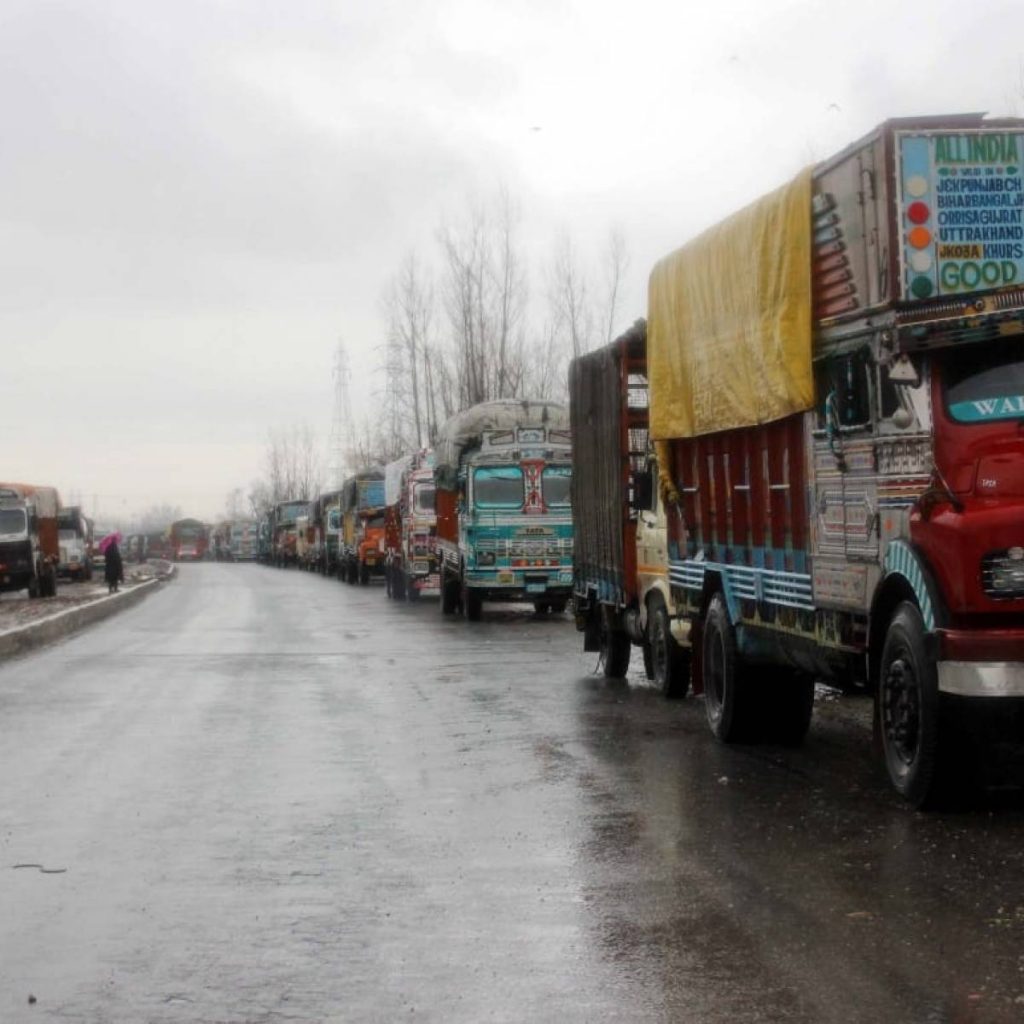
Significantly, in his first meeting with the Jammu and Kashmir politicians in over two years on June 24, 2021, Prime Minister Narendra Modi had emphasised on reducing Kashmir’s distance from Delhi-Dil ki duri aur Dilli ki duri. Gadkari’s ambitious project alongside green-lighting the rail linkage between Srinagar and Delhi in the next two years would be a veritable game changer in the process of Kashmir’s physical integration with the rest of India.
The Union Minister added that the second road corridor between Jammu and Srinagar through Doda-Kishtwar (NH-244) and the third one through Akhnoor-Rajouri-Shopian (Mughal Road) would serve as alternate arteries and connect two hilly wings to the two capital cities.
Referring to the 650-km Delhi-Katra express highway, Gadkari said the work had been distributed in different packages and already started on 16 packages in Punjab and Haryana. “After the completion of the Delhi-Katra express highway, the travel time between major cities, including Delhi-Amritsar, will be four hours, Delhi-Katra six hours and Delhi-Srinagar eight hours. This is my promise and it will be fulfilled,” he said.
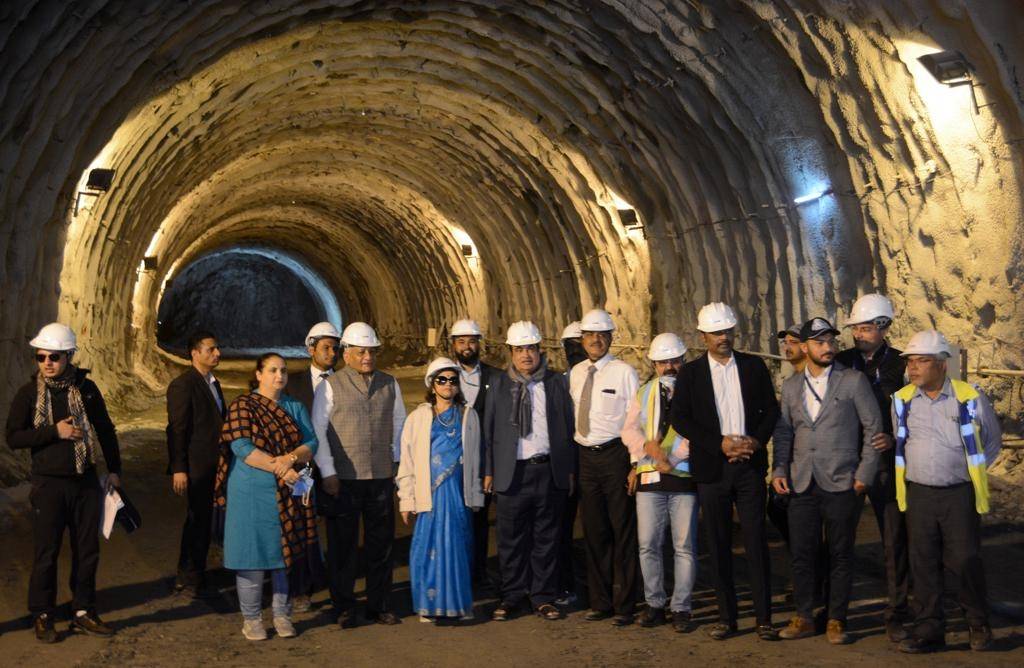
The Union Minister said work was also under various stages of completion on the 1350-km long Delhi-Mumbai expressway which would reduce the travel time between India’s political and financial capitals from 24 hours to just 12 hours. It is estimated to be completed within the expenditure of Rs 90,000 crore. He said that Delhi-Chandigarh, Delhi-Dehradun, Delhi-Haridwar and Delhi-Jaipur Road journeys would be covered in just two hours.
As regards the four-lane highway between Jammu and Srinagar, Gadkari added that work was going on speedily on the last two packages. While 85 per cent of work had been completed on the 95-km long Jammu-Udhampur-Nashri section (which includes a 10-km long tunnel), the 60-km section between Nashri and Banihal would be completed by December 2023.
These projects, which are strategically important for the swift movement of defence forces along with the agricultural, industrial and socio-economic progress of the region, will provide all-weather connectivity between Jammu and Kashmir.
The projects will connect all major roads leading to various district headquarters and will help in the generation of employment and self-employment opportunities.
Making a significant announcement, the Minister said the road communication projects worth Rs 1,00,000 crore-equal to the total expenditure on 1350-km long 8-lane Delhi-Mumbai Expressway-would be executed in Jammu and Kashmir in the next two years. Tunnels to the tune of Rs 50,000 crore were already under execution in the UT.
Gadkari’s yet another remarkable announcement came about a road, including a tunnel under the Sadhna Top, between Kupwara and Tangdhar (LoC) and a road, including a tunnel from Bafliaz (Rajouri) to Peer Ki Gali near Shopian, Kashmir. Once completed, these two arteries would provide 24x7x365 connectivity through the two hilly terrains.
“Four things water, power, transport and communication are imperative for the success of tourism and industrialisation, which will help in elevating poverty, creating jobs and boosting economy,” the Minister said, adding that the Centre was making all-out efforts to bring development and prosperity to Jammu and Kashmir.
Referring to the development of roads in J&K, he said when the BJP came to power in 2014, the total length of roads in Jammu and Kashmir was 1,695 km, which was expanded to 2,664 km by 2021. J&K, he said, was the only part in the country where tunnels worth over Rs 50,000 crore were currently being constructed. These include Asia’s longest road tunnel near Zojila on Srinagar-Kargil-Leh highway.
“I assure you that the infrastructure will be at par with the western European standards during the Modi government,” Gadkari said about the roads under execution and in the pipeline.
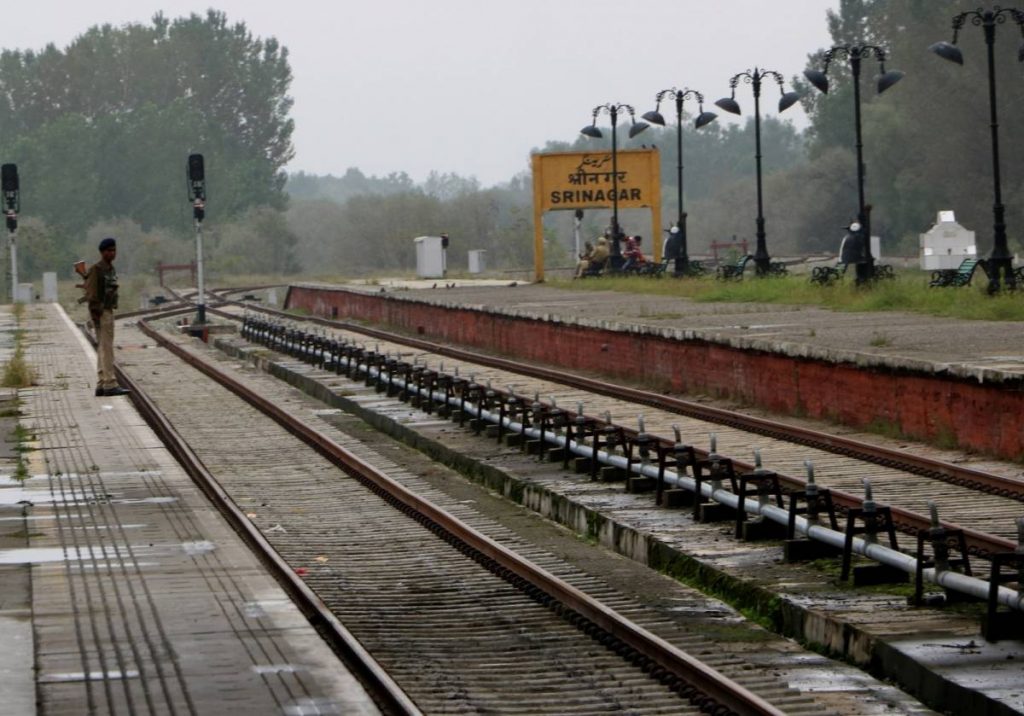
2023 will see Kashmir on the Railway canvas
The first proposal of bringing railways to Kashmir was made in 1898 by the Britishers, but their idea remained on paper.
Fast forward some 120 years, and India’s dream of fully integrating with the Valley is finally tangible with the Kashmir Railway Project ready to join the Indian Railways canvas by 2023.
The project is the highest altitude railway network in India — defying gravity on the impossible terrain of the Pir Panjal mountain range.
Making the fantasy a reality, it is the only railway line constructed in broad gauge on Indian mountains, daring to run the distance of 345 km over major earthquake-prone zones, while being exposed to extreme temperatures.
The arrangement of Kashmir railways is one of the greatest engineering challenges ever faced, only next to the China-Tibet railroad which crosses perpetually frozen ground and rises to more than 5,000m above sea level. In the case of Kashmir, the rail route owes its complexity to the dangerous rugged geography of the Himalayas.
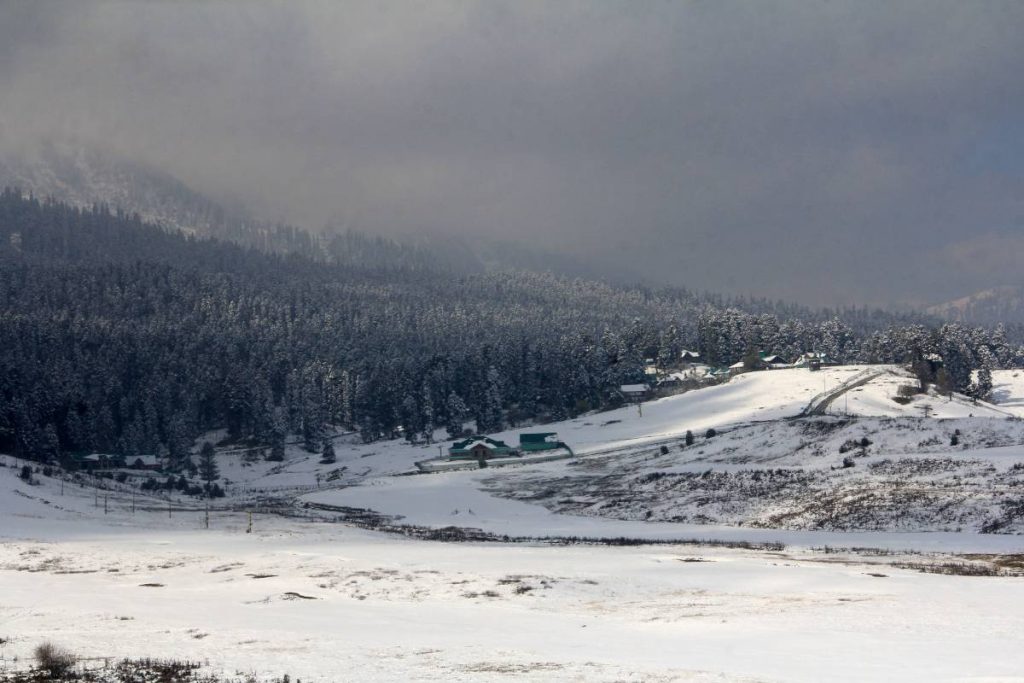
While the Valley has an average height of 1,850m, the surrounding Pir Panjal range has an average elevation of 3,000m. The trains are fixed with a snow cutter system for clearing the snow on the track while the temperature in coaches is maintained at 20-degree Celsius during winter months.
Union Railway Minister Ashwini Vaishnaw launched the ‘Rail Kaushal Vikas Yojana’ on September 17 and said that the engineers and technicians are working in difficult conditions to achieve the nation’s dream.
The connectivity to this region is important for national security, prosperity, and socio-economic development. Many other major roadways projects are also underway in the Valley along with the railways — all operating in mission mode to link the mountainous terrains, ravines, gorges, and river basins.
Modern Indian engineering made news a few days back when the arch of the world’s highest railway bridge running 1,315 meters and standing at a height of 359m above the Chenab River bed was completed.
It will allow the railways to cover maximum ground in the area. One more monumental project is the 272 km long Udhampur-Baramulla railway line project that would connect the two places through Jammu, passing through panoramic views of quaint mountainous towns, pristine river basins, and silent deodars.
Yet another spectacular engineering marvel is the Bridge No. 39 situated between Katra and Reasi, which was completed on October 20.
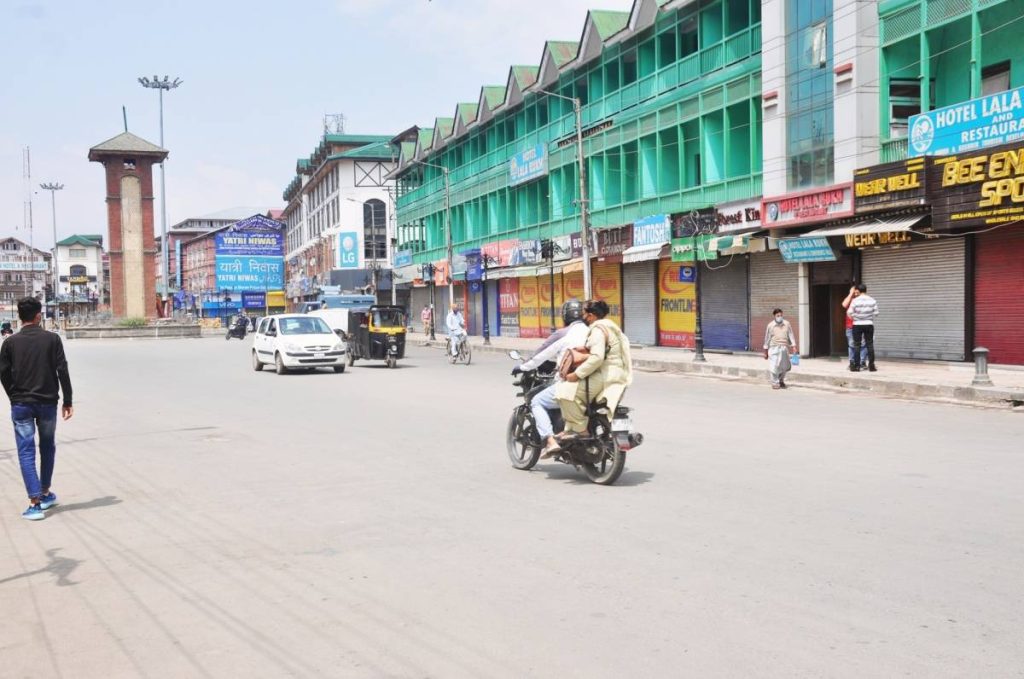
The Reasi yard station is built on high, rectangular, tapered hollow piers 105m in height, with the bridge spanning about 490m — a structure made with 7,000 reinforcement steel and 6,700 million tonnes of structural steel. This is a milestone achievement on the USBRL project in Jammu and Kashmir.
The Union Minister has kept a foresighted approach in this mega-project, ensuring no obstacles concerning funding, land acquisition etc.
The Indian Railways has prepared a National Rail Plan to create a ‘Future Ready’ railway system by 2030. From the perspective of tourism, trade and commerce, and the economy in general, the people of J&K will be able to explore novel opportunities for business and employment.
The Udhampur-Baramulla-Srinagar rail line stands erected at a cost of Rs 28,000 crore. For now, the focus is on the strategic, intervening line of about 111 km between Katra and Banihal, which consists of many tunnels and escape tunnels.
Meanwhile, the target date for completion of electrification works in the Banihal-Baramulla railway section is March 2022, according to the Railways.
The world’s most advanced technologies are being used for the planning and construction of the Kashmir Railway Project. What makes it more exciting are the peculiar challenges specific to this region, for which many times new technologies had to be developed by experts in India and abroad to tackle the concerns.
The story of Kashmir Railways is sure to go down as the new chapter of the region’s glory, development and prosperity.
ALSO READ: Navies of India, Lanka, Maldives conduct trilateral operations


